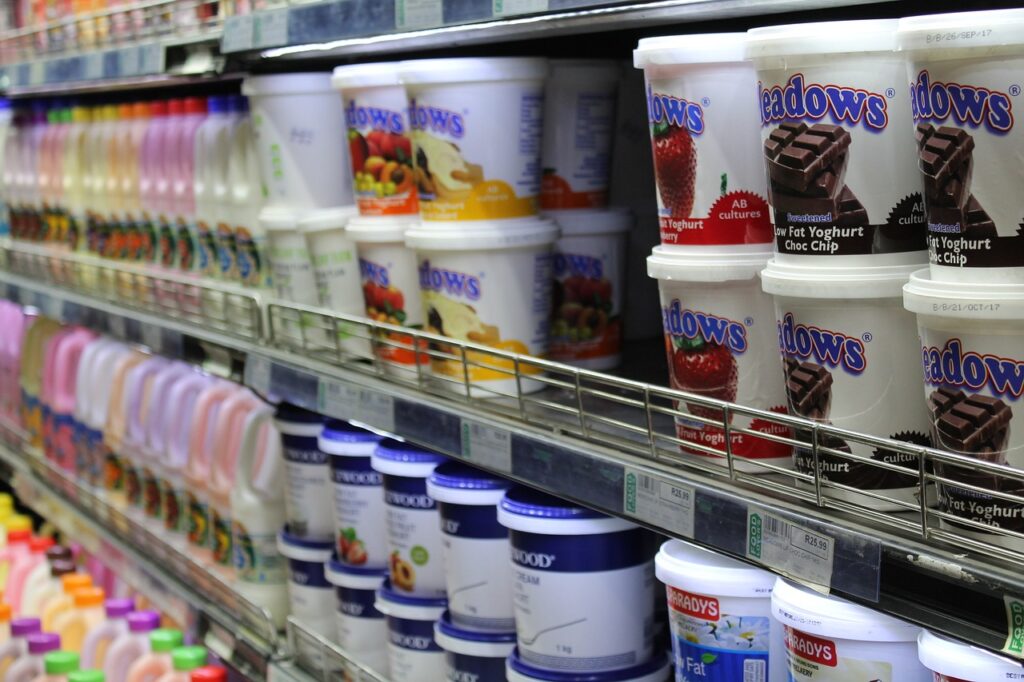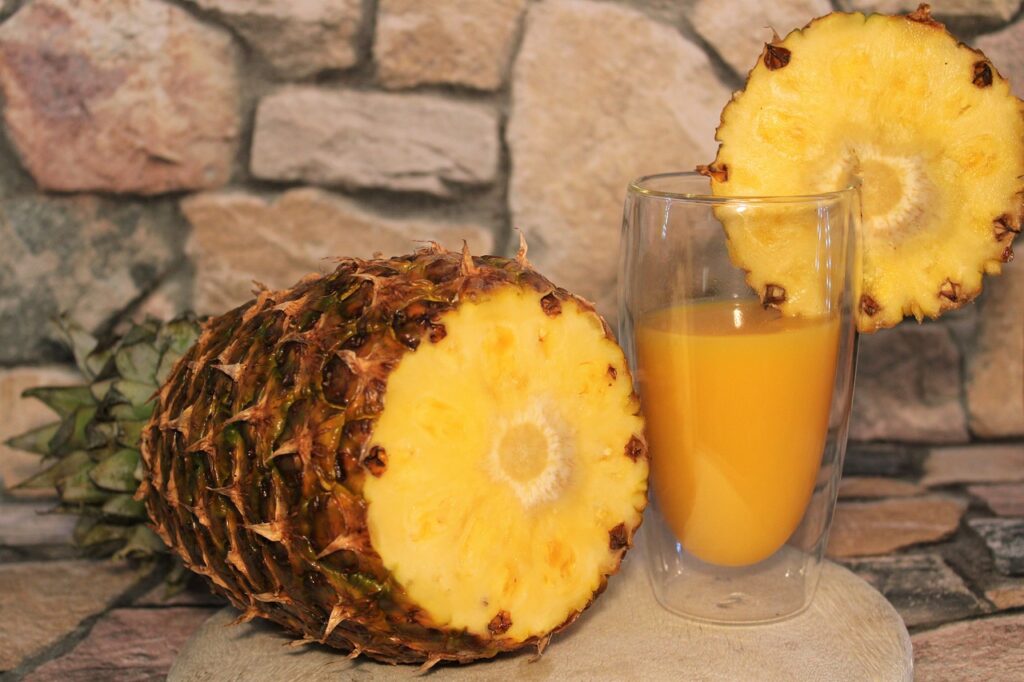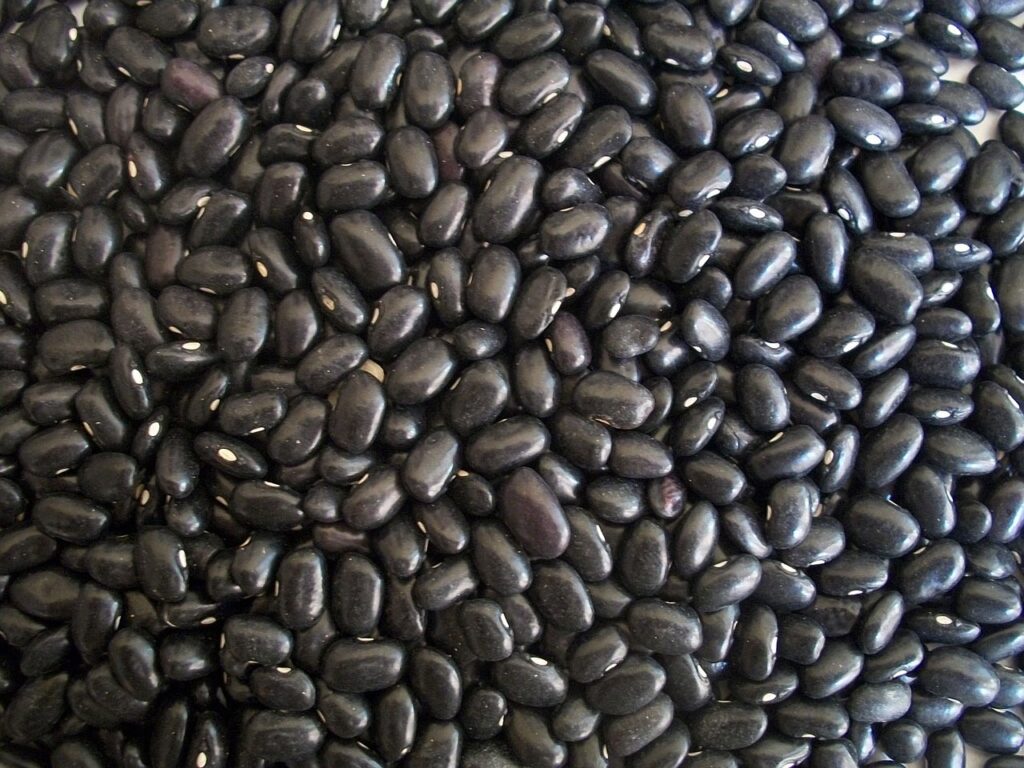If you're on a keto diet, finding the right snacks can be like navigating a nutty and seed-filled maze. But fear not, because we're here to guide you through the twists and turns.
In this discussion, we'll reveal the top keto tips for incorporating these crunchy delights into your low-carb lifestyle. From choosing the right nuts and seeds to understanding their macros, we'll equip you with all the knowledge you need to make informed snacking decisions.
So, get ready to unlock the secrets of nutty and seed snacks on your keto journey.
Nutty and Seed Snacks: The Basics

When it comes to incorporating nutty and seed snacks into your keto lifestyle, it's important to understand the basics. Nuts and seeds are excellent sources of healthy fats, with moderate amounts of protein and carbohydrates. They also provide fiber, making them suitable for a keto diet. However, it's crucial to pay attention to the net carb count and fiber content of nuts and seeds to make keto-friendly choices. Net carbs per serving can be calculated by subtracting the grams of fiber from the total grams of carbohydrates.
To guide your snack choices, it's helpful to identify the top keto-friendly nuts and seeds. Flax seeds, pecans, and chia seeds are all great options due to their low net carb count and high fat content. On the other hand, higher-carb nuts like cashews and pistachios should be enjoyed in moderation.
Soaking nuts and seeds can improve their digestibility, and it's important to be mindful of serving sizes to avoid consuming excess carbohydrates.
Choosing Keto-Friendly Nuts and Seeds
When choosing nuts and seeds for a keto diet, it's important to consider their net carb count. Look for options with lower net carb counts to stay within your keto-friendly limits.
Remember to enjoy them in moderation and be mindful of portion sizes to maintain your desired macronutrient balance.
Nutritional Value Comparison
To choose keto-friendly nuts and seeds, it's crucial to compare their nutritional value, paying attention to net carb counts and fiber content. Net carb counts are especially important on a ketogenic diet because they take into account the fiber content, which is subtracted from the total carbs to give you the amount of carbs that will impact your blood sugar levels.
When comparing the nutritional value of different nuts and seeds, consider options like macadamia nuts, which are high in healthy fats and low in net carbs. Pecans, Brazil nuts, and walnuts are also good choices, as they have low net carb counts and provide a good amount of healthy fats.
For seeds, flaxseeds, chia seeds, and pumpkin seeds are excellent options with low net carb counts and high fiber content.
Remember to enjoy higher-carb nuts and seeds like cashews and sunflower seeds in moderation to stay within your daily grams of net carbs.
Portion Control Tips
For better portion control on a keto diet, opt for nuts and seeds with lower net carb counts. Here are some tips to help you make informed choices:
- Be mindful of portion sizes: While nuts and seeds can be a healthy addition to a keto diet, they're calorie-dense and can add up quickly. Stick to recommended serving sizes to avoid going over your daily carb limit.
- Calculate net carbs: Net carbs are the total carbs minus the fiber content, which isn't digested by the body. This is the number you should pay attention to when choosing keto-friendly nuts and seeds.
- Enjoy in moderation: Nuts and seeds like flax seeds, hemp seeds, and pecans are lower in net carbs and high in protein. Incorporate them into your diet but remember to keep portions in check.
- Avoid high net carb options: Cashews and sesame seeds, for example, have higher net carb counts and should be limited on a keto diet.
Understanding Macros for Nuts and Seeds

Are you curious about the macronutrient breakdown of nuts and seeds? Understanding the macros is essential for maintaining a healthy keto diet. When it comes to nuts and seeds, it's important to choose the ones with a lower net carb count and higher fiber content.
Research shows that some nuts and seeds are more keto-friendly than others. Let's start with nuts. The best keto nuts are those with a low net carb count. For example, almonds and macadamia nuts are excellent choices. They contain healthy fats and are low in carbs. Eating Brazil nuts can also be beneficial as they're packed with monounsaturated fatty acids and are an excellent source of selenium.
Now, let's move on to seeds. Similar to nuts, seeds with higher net carb counts should be avoided. Flaxseeds and chia seeds are great options for a keto diet because they've a low net carb count and are high in fiber. These seeds also help regulate blood sugar levels and provide numerous health benefits.
Top 10 Keto-Friendly Nuts and Seeds
Looking to incorporate more nuts and seeds into your keto diet? Good news! These little powerhouses not only provide a variety of health benefits but also offer a wide range of keto-friendly options.
From flax seeds high in fiber to pecans with their heart-protective properties, there's something for everyone.
Health Benefits of Nuts and Seeds
Nuts and seeds, packed with healthy fats, fiber, and moderate protein and carbs, offer numerous health benefits that make them an excellent choice for a keto diet. Here are some of the key benefits of including nuts and seeds in your keto meal plan:
- Omega-3 Fatty Acids: Certain nuts and seeds like chia seeds and pumpkin seeds are rich in omega-3 fatty acids, which have been shown to support heart health and reduce inflammation.
- Weight Loss: Nuts and seeds are high in fiber and protein, which can help you feel fuller for longer and support weight loss efforts.
- Nutrient Dense: Nuts like almonds and seeds like flax seeds are packed with essential vitamins, minerals, and antioxidants, making them a nutritious addition to your diet.
- Versatility: Nuts and seeds can be used in a variety of ways on a keto diet, including as a topping for salads, as almond flour for baking, or as a crunchy snack on their own.
Incorporating a variety of nuts and seeds into your keto meal plan can provide both flavor and health benefits.
Variety of Keto-Friendly Options
When it comes to incorporating a variety of nuts and seeds into your keto meal plan, you'll find an abundance of delicious and keto-friendly options to choose from. Pumpkin seeds, flax seeds, hemp seeds, sunflower seeds, peanuts, almonds, and walnuts are all excellent choices for a keto-friendly snack.
These nuts and seeds are high in healthy fats, moderate in protein and carbs, and rich in fiber, making them perfect for a keto diet. They also provide various essential nutrients, including vitamins, minerals, and antioxidants.
Whether you enjoy them as a standalone snack or add them to your salads, smoothies, or keto-friendly recipes, these nuts and seeds are sure to satisfy your cravings while keeping you in ketosis.
Remember to enjoy them in moderation to stay within your macros and choose options without added sugars or dried fruits.
Incorporating Nuts and Seeds Into Your Diet
To incorporate a variety of nuts and seeds into your keto diet, here are the top 10 keto-friendly options that provide essential nutrients and convenient snacking choices:
- Almonds: With about 6 grams of protein and 14 grams of healthy fats per ounce, almonds are a great choice for keto. They also contain fiber and Vitamin E, which acts as an antioxidant.
- Walnuts: High in omega-3 fatty acids, walnuts offer 4 grams of protein and 18 grams of healthy fats per ounce. They're also low in net carbs.
- Macadamia Nuts: These nuts are high in fat and low in carbs, making them ideal for keto. They provide 2 grams of protein and 21 grams of healthy fats per ounce.
- Pecans: Pecans are low in net carbs and offer potential health benefits. They contain 3 grams of protein and 20 grams of healthy fats per ounce.
- Brazil Nuts: Rich in selenium and low in net carbs, Brazil nuts provide 4 grams of protein and 19 grams of healthy fats per ounce.
- Pumpkin Seeds: With 9 grams of protein and 13 grams of healthy fats per ounce, pumpkin seeds are a nutritious choice for keto. They also offer a good source of fiber and Vitamin E.
- Chia Seeds: Chia seeds are high in fiber and provide 4 grams of protein and 9 grams of healthy fats per ounce. They're also rich in omega-3 fatty acids.
- Flax Seeds: These seeds are a great source of omega-3 fatty acids and fiber. They offer 5 grams of protein and 12 grams of healthy fats per ounce.
- Hemp Seeds: Hemp seeds are rich in omega-3 fatty acids and minerals. They provide 10 grams of protein and 12 grams of healthy fats per ounce.
- Sesame Seeds: With 6 grams of protein and 13 grams of healthy fats per ounce, sesame seeds are a versatile option for keto. They also contain fiber and minerals.
Incorporating these nuts and seeds into your keto diet not only adds variety to your meals and snacks but also provides essential nutrients, including healthy fats, protein, and fiber. Remember to consume them in moderation and consider soaking them to enhance digestibility.
Higher-Carb Nuts to Enjoy in Moderation
Enjoy these higher-carb nut varieties in moderation for a satisfying and nutrient-packed keto-friendly snack. While peanuts are technically legumes, they're often included in the nut category due to their similar nutrient profile. Peanuts have a moderate amount of carbohydrates, with 100 grams containing around 16 grams of net carbs. They're also rich in protein, healthy fats, and various vitamins and minerals, making them a great addition to your keto diet.
Sesame seeds are another higher-carb option, with 100 grams containing around 23 grams of net carbs. However, they're also high in fiber, which can help slow down digestion and prevent blood sugar spikes. Sesame seeds are also a good source of healthy fats, protein, and various micronutrients.
Brazil nuts are known for their high selenium content, which is important for thyroid function and antioxidant defense. While they're higher in carbs compared to some other nuts, they can still be enjoyed in moderation. 100 grams of Brazil nuts contain around 12 grams of net carbs.
Digestibility of Nuts and Seeds on Keto

Nuts and seeds on a keto diet are highly digestible due to their high fat and moderate protein content. Here are some important facts about the digestibility of nuts and seeds on a keto diet:
- Fiber content: Nuts and seeds contain fiber, which aids in digestion and can help lower the net carb count. This makes them more digestible on a keto diet. Some nuts and seeds, such as flaxseeds and chia seeds, are particularly rich in fiber, promoting better digestion and making them a great choice for keto.
- Soaking for improved digestibility: Soaking nuts and seeds in water can improve their digestibility. This process reduces enzyme inhibitors and phytic acid content, making the nutrients more accessible for your body to absorb.
When it comes to specific nuts and seeds, here are some examples of their digestibility on a keto diet:
- Peanut butter: Made from ground peanuts, peanut butter is highly digestible and a popular choice for keto enthusiasts.
- Pili nuts: Known for their rich buttery flavor, pili nuts are highly digestible and provide a good source of healthy fats.
- Sesame seeds: These tiny seeds aren't only packed with nutrients but are also easily digestible, making them a great addition to a keto diet.
- Pepitas: Also known as pumpkin seeds, pepitas are highly digestible and offer a good source of protein and healthy fats.
- Brazil nuts: These large nuts are easy to digest and are a great source of selenium, a mineral that plays a vital role in metabolism.
The Benefits of Pili Nuts
Pili nuts offer a nutrient-dense and satiating snack option for those following a ketogenic lifestyle, thanks to their low net carb count and high-fat content. With just 1.1 grams of net carbs per ounce, pili nuts are a keto-friendly choice. These nuts are also a rich source of antioxidants, which can help reduce inflammation and support overall health.
One study even found that pili nuts contain six grams of protein per serving, making them a great option for those looking to support weight management and muscle recovery. Additionally, pili nuts are packed with essential nutrients, such as manganese, which research shows can improve bone density and overall health.
Incorporating pili nuts into your diet can also have positive effects on cholesterol and blood insulin levels. The high-fat content of pili nuts can help increase HDL (good) cholesterol levels, while reducing LDL (bad) cholesterol levels. This can contribute to a healthier cardiovascular system. Additionally, the healthy fats in pili nuts can help regulate blood insulin levels, which is important for those following a ketogenic diet.
Identifying the Best Keto Nuts and Seeds

To choose the best nuts and seeds for a keto diet, it's crucial to understand the concept of net carbs and prioritize options with low net carb counts and high healthy fat content. Here are some tips to help you identify the best keto nuts and seeds:
- Consider the net carb count: Net carbs are calculated by subtracting the fiber content from the total carbohydrates. Look for nuts and seeds with low net carb counts to keep your carb intake in check. Options like peanuts, sesame seeds, and Brazil nuts tend to have lower net carb counts.
- Focus on healthy fats: Healthy fats are a staple of the keto diet as they provide a steady source of energy. Opt for nuts and seeds that are high in healthy fats, such as pepitas (pumpkin seeds) and Brazil nuts.
- Take note of nutritional information: When choosing nuts and seeds, always check the nutritional information. Look for options that are high in fiber, as fiber contributes to a lower net carb count. Flaxseeds and pili nuts are great choices due to their exceptionally low net carb counts.
11 Healthy Picks for a Low-Carb Diet
When it comes to making healthy picks for a low-carb diet, understanding the net carb content of nuts and seeds is key. Nuts and seeds are high in healthy fats, moderate in protein and carbohydrates, and rich in fiber, making them suitable for a low-carb diet.
Opt for nuts and seeds like flax seeds, hemp seeds, and pecans, which have low net carb counts and offer various health benefits. These nuts are the best choice because they aren't only low in carbs but also provide essential nutrients. Add them to salads or enjoy them as a snack to boost your intake of healthy fats and fiber.
Cashews and pistachios, on the other hand, should be enjoyed in moderation due to their higher net carb counts. While they still offer health benefits, it's important to be mindful of portion sizes. Avoid nuts and seeds with higher net carb counts, such as chestnuts and peanuts, when following a keto diet. Peanuts are technically a legume and have a higher carb content compared to other nuts. However, if you do choose to include peanuts in your diet, consume them in moderation.
Nuts and seeds support heart health and reduce cholesterol levels. They're a good source of plant-based protein and contain essential vitamins and minerals. Additionally, they're high in fiber, with some varieties providing up to 5 grams of fiber per serving.
Incorporating a variety of nuts and seeds into your low-carb diet can help you meet your nutritional needs while keeping your carbohydrate intake in check.
Next Steps for Incorporating Nuts and Seeds

To effectively incorporate nuts and seeds into your keto diet, it's important to make mindful choices and pay attention to portion sizes. Here are some next steps to help you on your journey:
- Choose nuts and seeds with lower net carb counts for a keto-friendly diet. This will ensure that you stay within your daily carbohydrate limit while still enjoying the benefits of these nutritious snacks.
- Pay attention to portion sizes to avoid consuming excess calories and carbs. While nuts and seeds are packed with healthy fats and protein, they can be high in calories. Stick to recommended serving sizes to maintain your keto goals.
- Consider soaking nuts and seeds in water to improve digestibility. Soaking can help remove enzyme inhibitors and phytic acid, making them easier for your body to break down and absorb nutrients.
- Be mindful of the potential impact of high arginine content in nuts and seeds for individuals with the herpes simplex virus (HSV). Arginine can trigger outbreaks in some people, so it's important to be aware of this if you have HSV.
- Experiment with incorporating nuts and seeds into various recipes, snacks, and meals to enjoy their health benefits on a ketogenic diet. Nuts are rich in healthy fats, fiber, and important nutrients like vitamin E, while seeds are an excellent choice for their omega-3 fatty acids, which can help prevent inflammation and support brain and cardiovascular health.
Why Nuts and Seeds Are Ideal for Keto
Nuts and seeds are an ideal choice for a keto diet due to their high fat content, moderate protein and carbohydrate levels, and fiber content that helps lower net carbs. When following a keto diet, it's important to find foods that are low in carbs but high in healthy fats. Nuts and seeds fit this criteria perfectly. They provide a good source of fats, which are essential for energy and satiety on a low-carb diet.
Pepitas, Brazil nuts, and sesame seeds are some examples of nuts and seeds that are suitable for a keto diet. They can be enjoyed as a snack or added to dishes like salads or smoothies. One important factor to consider when consuming nuts and seeds on a keto diet is the serving size. While they're nutrient-dense, they can be high in calories, so it's crucial to be mindful of portion control.
In addition to being high in healthy fats, nuts and seeds also contain essential amino acids that are important for muscle repair and growth. They're also packed with vitamins, minerals, and antioxidants that can support overall health. Moreover, research has shown that including nuts and seeds in a keto diet can help improve cardiometabolic risk factors such as blood pressure.
11 Keto-Friendly Nuts and Seeds to Try

Looking to add some variety to your keto diet? Consider incorporating keto-friendly nuts and seeds into your snacking routine.
Not only do nuts and seeds provide a satisfying crunch, but they also offer a range of health benefits.
From flax seeds high in fiber to hemp seeds packed with omega-3 fatty acids, there are plenty of options to choose from that can support your overall well-being while keeping you in ketosis.
Health Benefits of Nuts and Seeds
Incorporating keto-friendly nuts and seeds into your diet can provide essential nutrients and improve cardiometabolic risk factors. Here are some health benefits of nuts and seeds:
- Nuts and seeds, such as sesame seeds and pepitas, are rich in healthy fats which can help increase your intake of monounsaturated and polyunsaturated fats. These fats have been shown to improve heart health by reducing LDL cholesterol levels and lowering the risk of heart disease.
- Brazil nuts are a great source of selenium, a mineral that acts as an antioxidant and supports thyroid function. Just one Brazil nut can provide your daily recommended intake of selenium.
- Nuts and seeds are also packed with amino acids, the building blocks of protein. Including these snacks in your keto diet can help meet your protein needs and support muscle growth and repair.
Ways to Incorporate Nuts and Seeds Into Your Keto Diet
To incorporate nuts and seeds into your keto diet, consider trying these keto-friendly options rich in healthy fats, moderate in protein, and low in carbs.
- Sesame seeds are a great addition, providing polyunsaturated fats and a nutty flavor.
- Pepitas, or pumpkin seeds, are another excellent choice, offering monounsaturated fats and a satisfying crunch.
- Brazil nuts are also keto-friendly, packed with selenium and heart-healthy fats.
You can incorporate these nuts and seeds into your keto diet in various ways.
- Sprinkle sesame seeds on salads or roasted vegetables for added crunch and flavor.
- Add pepitas to your favorite keto-friendly protein shakes for a nutrient boost.
- Enjoy Brazil nuts as a snack on their own or chop them up and use them as a topping for keto-friendly desserts.
Remember to practice portion control to avoid weight gain, as nuts and seeds are calorie-dense.
Nuts and Seeds for Keto: Nutritional Facts
Nuts and seeds on a keto diet offer a high-fat, moderate protein, and carbohydrate option, with the added benefit of fiber to help lower the net carb count. When incorporating nuts and seeds into your keto diet, it's important to be mindful of their nutritional profiles and net carb counts. Here are some key facts to consider:
- Flax seeds, hemp seeds, shelled pumpkin seeds, pecans, and Brazil nuts are recommended as top keto-friendly options. These nuts and seeds have low net carb counts and are packed with essential nutrients. For example, Brazil nuts are rich in selenium, an antioxidant that supports immune function.
- Cashews, sesame seeds, pistachios, sunflower seeds, and pine nuts should be enjoyed in moderation. While they still offer nutritional benefits, they have slightly higher net carb counts compared to other options. However, they can still be a great alternative for variety and flavor in your keto snacks.
Nuts and Seeds to Avoid on Keto

When following a keto diet, it's important to be aware of the nuts and seeds that are best to avoid due to their higher carb content and potential inflammatory effects. While nuts and seeds are generally considered a healthy addition to a low-carb diet, there are a few varieties that you should be cautious about.
Firstly, chestnuts should be avoided on a keto diet as they're higher in carbs compared to other nuts and seeds. They contain approximately 23 grams of net carbs per 100 grams, which can significantly impact your daily carb intake.
Additionally, peanuts should be consumed in moderation or avoided altogether. Although they're technically legumes, they're often grouped with nuts. Peanuts have a higher net carb count compared to other nuts and seeds and can be inflammatory for some individuals.
It's also important to steer clear of nut and seed mixes that contain dried fruits or added sugars. These can significantly increase the carb content and hinder your progress on a keto diet.
Lastly, be cautious when consuming nut butters such as cashew butter and peanut butter. These products may contain added sugars, which can spike your blood sugar levels and hinder your state of ketosis.
Incorporating Nuts and Seeds Into Your Keto Diet
Incorporating nuts and seeds into your keto diet can provide you with a delicious and nutritious way to boost your healthy fat intake while keeping your carb count in check. Here are some tips to help you incorporate nuts and seeds into your keto diet:
- Choose lower-carb options: Different nuts and seeds have varying carb levels. Opt for nuts and seeds that are lower in carbs, such as flaxseeds, hemp seeds, pecans, Brazil nuts, and chia seeds. These options have lower net carb counts while still offering health benefits.
- Calculate net carbs: When selecting nuts and seeds, it's important to calculate their net carbs. Net carbs are calculated by subtracting fiber from total carbs. This calculation can guide your choices and help you stay within your desired carb limit.
- Enjoy in moderation: While nuts and seeds are nutritious, they're also calorie-dense. It's important to enjoy them in moderation to avoid going over your daily calorie intake.
- Nutrient-packed options: Incorporating nuts and seeds into your keto diet can provide you with essential nutrients. For example, Brazil nuts are rich in selenium, which is important for thyroid function. Additionally, nuts and seeds are packed with B vitamins, healthy fats, and insoluble fiber.
Remember to control your portion sizes, as just an ounce (28 grams) of nuts and seeds can provide a significant amount of calories.
Conclusion
Incorporating nutty and seed snacks into your keto diet can provide essential nutrients and support your health goals. Remember to choose keto-friendly options with moderate net carb counts and enjoy them in moderation.
These snacks can add variety and flavor to your meals, while also improving heart health and aiding in weight loss. As the saying goes, 'A handful of nuts a day keeps the doctor away!'







